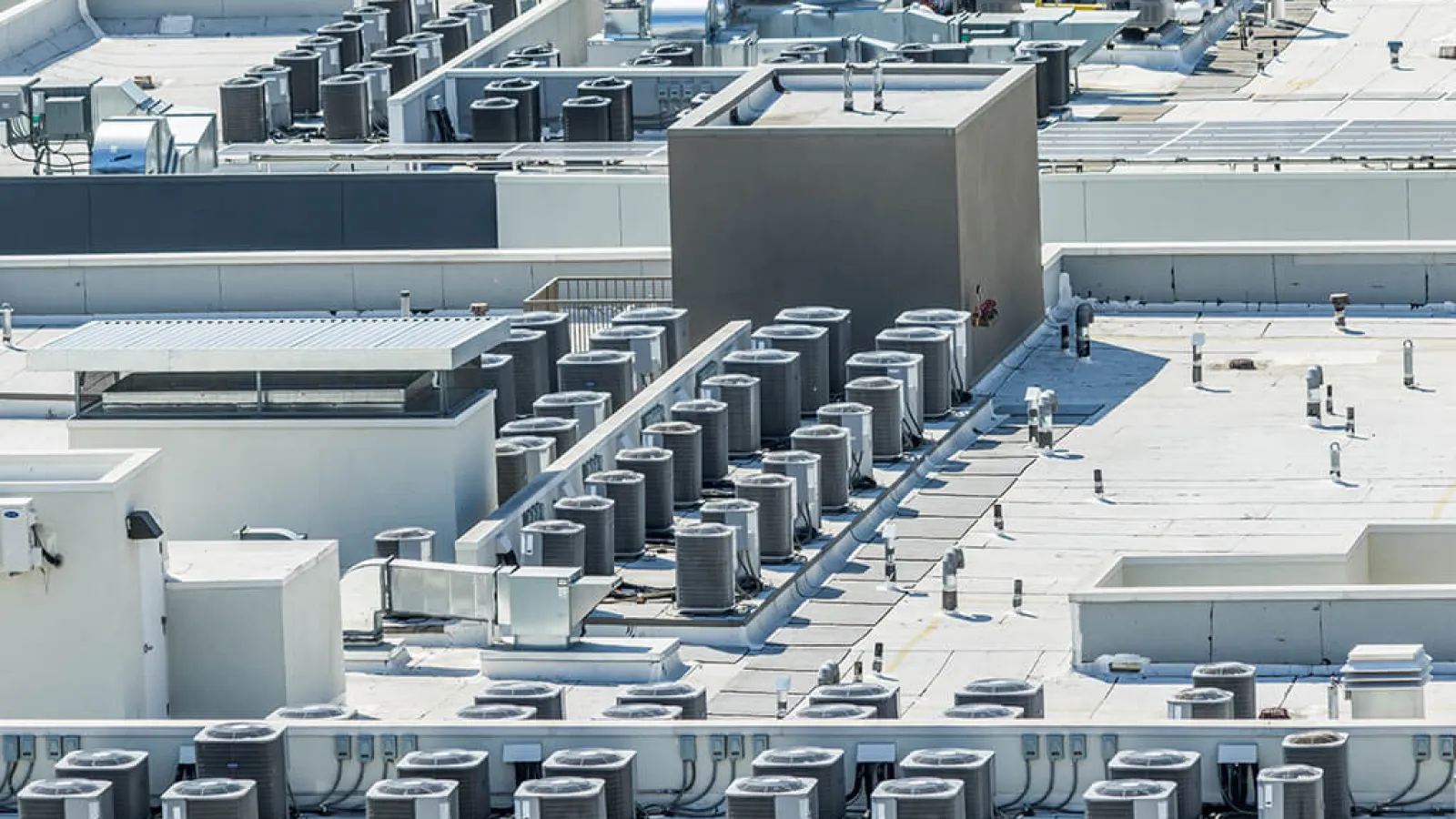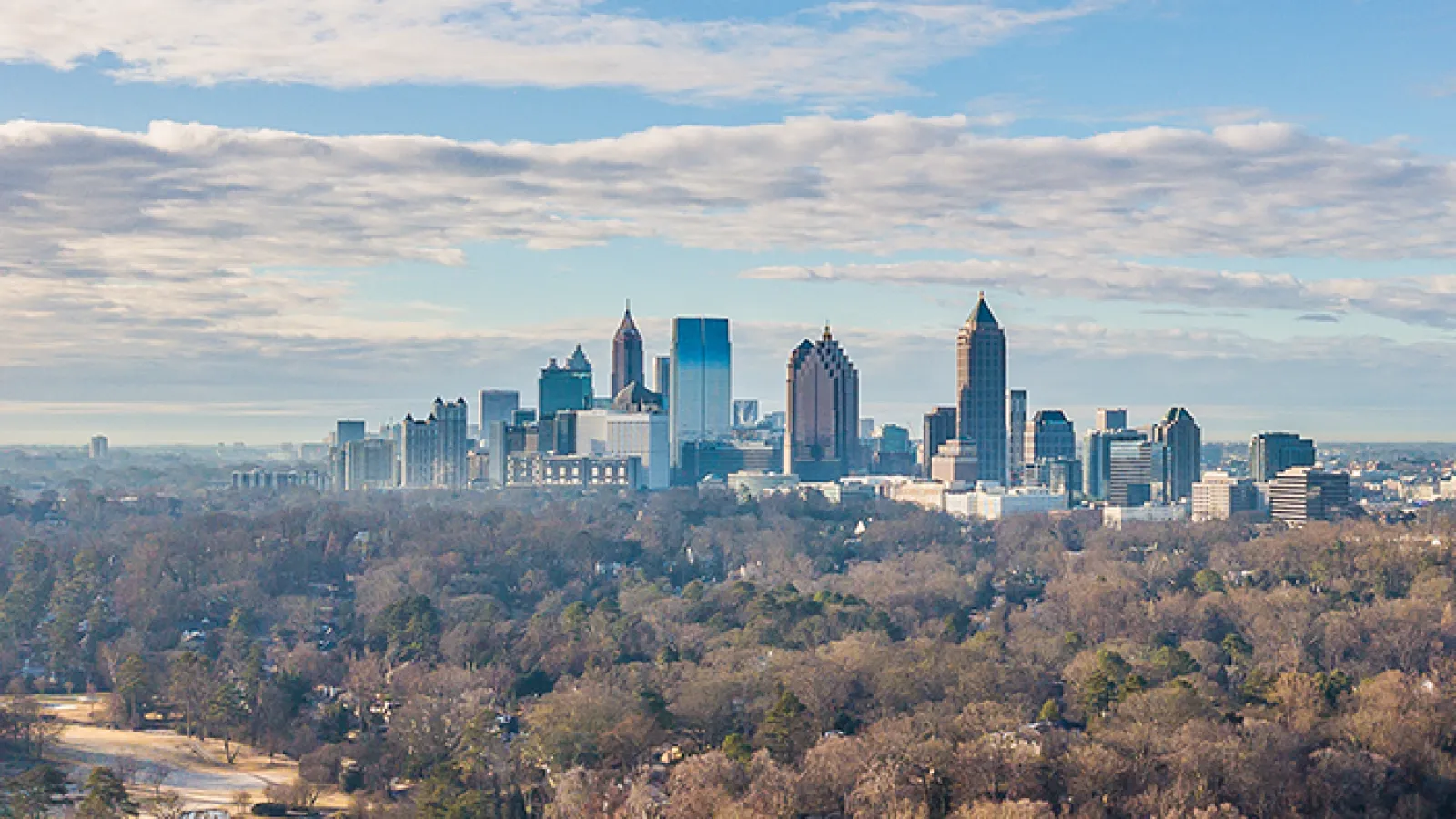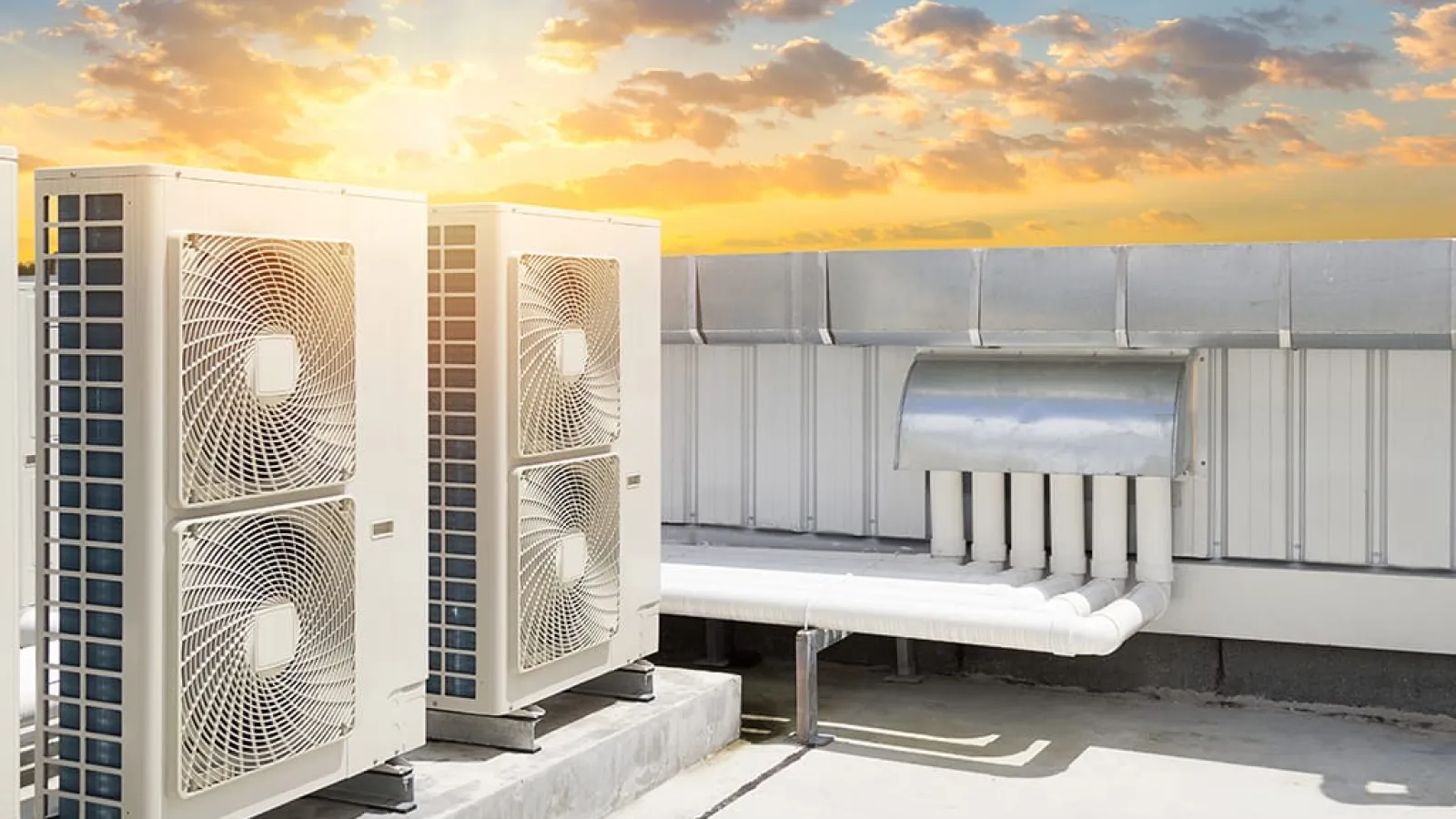Commercial HVAC System Costs & Maintenance
Whether you own a building or manage facilities, you might wonder how the cost of a new commercial HVAC system impacts your bottom line. After all, your commercial HVAC system is critical to the operation of your business.
A quality HVAC system maintains a comfortable working environment and an inviting experience for customers. In some applications, properly functioning heating and cooling systems are critical for operations and production. The approximate cost of a new commercial HVAC system for your facility depends on several factors.
We'll cover what impacts commercial HVAC system pricing and how you can keep commercial HVAC costs in check with an investment in preventive maintenance. A customized HVAC maintenance plan also catches small problems early and saves you the headache of an expensive breakdown. If your current HVAC system is older and failing to keep your business or building comfortable, you may need commercial HVAC installation services from Estes Services. Estes also offers HVAC repair services for both commercial and residential properties at an affordable price.
What Determines Commercial HVAC Prices?
- Brand
- Type of HVAC Unit
- Labor and HVAC installation costs
- Commercial building size
- Type of business/activity
Which Brand You Choose Impacts the Price of Commercial HVAC Systems
Many HVAC companies partner with specific equipment manufacturers, which are usually more stringent in the residential division. Commercial HVAC systems are distinct due to the diversity of equipment, ranging from light commercial units to large cooling towers and rooftop units for multi-story structures.
For example, Estes partnered with Carrier many years ago and installed a majority of their HVAC equipment due to its energy efficiency, quality, and warranty coverage.
Estes also uses energy-efficient Mitsubishi ductless units to solve specific HVAC challenges for commercial clients, such as older buildings or properties with fluctuating occupancy, like places of worship.
Estes Commercial also uses these brands: Liebert, Aaon, Trane, Lennox, and Honeywell, among others. At Estes, we source the most appropriate equipment for the job, regardless of brand, which is based on your business needs and budget.
The Type of HVAC Unit Affects Costs
Do you have a small commercial property similar to a large house? Do you need packaged units for an apartment building or hotel? How about cooling towers and massive rooftop units?
Commercial heating and cooling systems operate using various technologies, such as variable or constant air volume. Some systems don't use air at all. We recommend a personal assessment from a trained commercial HVAC technician to determine the best HVAC system for your property.
Variable Air Volume (VAV) Systems
VAV systems are highly efficient. Similar to high-end energy-efficient home HVAC units, variable systems adjust airflow based on current room temperature. They are responsive, featuring variable-speed motors that increase energy efficiency and occupant comfort.
Constant Air Volume (CAV) Systems
CAV systems include single-split and multi-split setups, which are common in commercial systems. They use an indoor air handler with an outdoor AC compressor. Best for smaller commercial buildings with few rooms, they operate in simple on/off modes and cost less initially but are less energy efficient.
Variable Refrigerant Volume (VRV) Systems
VRV systems use piping to circulate coolant, heating, and cooling individual rooms as needed. These systems are popular in commercial properties for precise climate control, eliminating the need for forced air.
Labor and HVAC Installation Costs Vary Widely
Installation complexity significantly affects costs. Historic or older buildings may require special permits, creative ductwork, or additional labor to navigate architectural challenges.
Rooftop installations often require cranes and specialized equipment, which can increase labor costs. Always ask if insurance is included in the quote to avoid unexpected fees.
Commercial Building Size is One of the Biggest Factors for New Commercial HVAC Costs
Proper sizing is crucial. A system that is too large cycles too quickly, causing wear and inefficient cooling. Too small, and the system runs constantly without meeting temperature goals.
A simple estimation formula: divide total building square footage by 500, then multiply by 12,000 to estimate the BTUs your system should move.
Type of Business or Activity Impacts New Commercial HVAC Estimates
Insulation, occupancy, and activity levels influence heating and cooling needs. Modern insulation reduces load, while high-activity businesses generate more heat and require larger systems.
Server rooms need specialized cooling and controls. Manufacturing lines and healthcare facilities have differing HVAC requirements. As a general rule, each occupant equals about 400 BTUs, though activity levels may vary from this.
Bonus Factors
Automation and Controls
Building automation and controls allow facility managers to monitor usage data and adjust settings remotely. These systems improve energy management and alert users to maintenance needs.
Advanced systems integrate controls for security, lighting, ventilation, and access monitoring.
SEER Rating
The Seasonal Energy Efficiency Ratio (SEER) measures cooling output relative to energy use. Higher SEER units cost more upfront but save on energy bills over time. Discuss SEER ratings with your HVAC professional to choose the best value.
Ready for Commercial HVAC System Replacement?
Commercial HVAC system prices vary based on capacity, features, installation requirements, and labor. Additional components like piping, UV lamps, air purifiers, automated ventilation, and controls influence total cost.
Get a detailed cost breakdown and ask your contractor to explain each component. If eligible, use recent tax incentives like Section 179 to deduct the full cost of your commercial HVAC unit in one year.
Consult a tax professional for details on how these incentives apply to your business.
Commercial HVAC Maintenance Preserves Your Investment
Regular maintenance improves HVAC system performance, efficiency, and lifespan, helping avoid costly breakdowns and early replacement. Estes' NATE-certified commercial HVAC experts customize preventive maintenance plans to meet your facility's needs.
Maintenance is usually bi-annual (spring and fall) and covers filter changes, tune-ups, and inspections. A tailored service contract ensures reliable performance year-round and helps control operating costs.
Save Money with Commercial HVAC Unit Maintenance
Commercial HVAC maintenance offers these benefits:
- Improved system performance and reduced energy consumption
- Early detection and repair of minor issues, avoiding costly breakdowns
- Extended HVAC system life, delaying expensive replacements
For New Commercial HVAC Cost Estimates, Call Estes
Invest in energy-efficient commercial HVAC maintenance for better performance, lower costs, and longer equipment life. Contact Estes Commercial today to schedule a customized estimate and discuss your HVAC needs.
With over 75 years of experience, Estes Services proudly supports commercial properties across the greater Atlanta area, including healthcare facilities, schools, daycare centers, places of worship, and office buildings.




